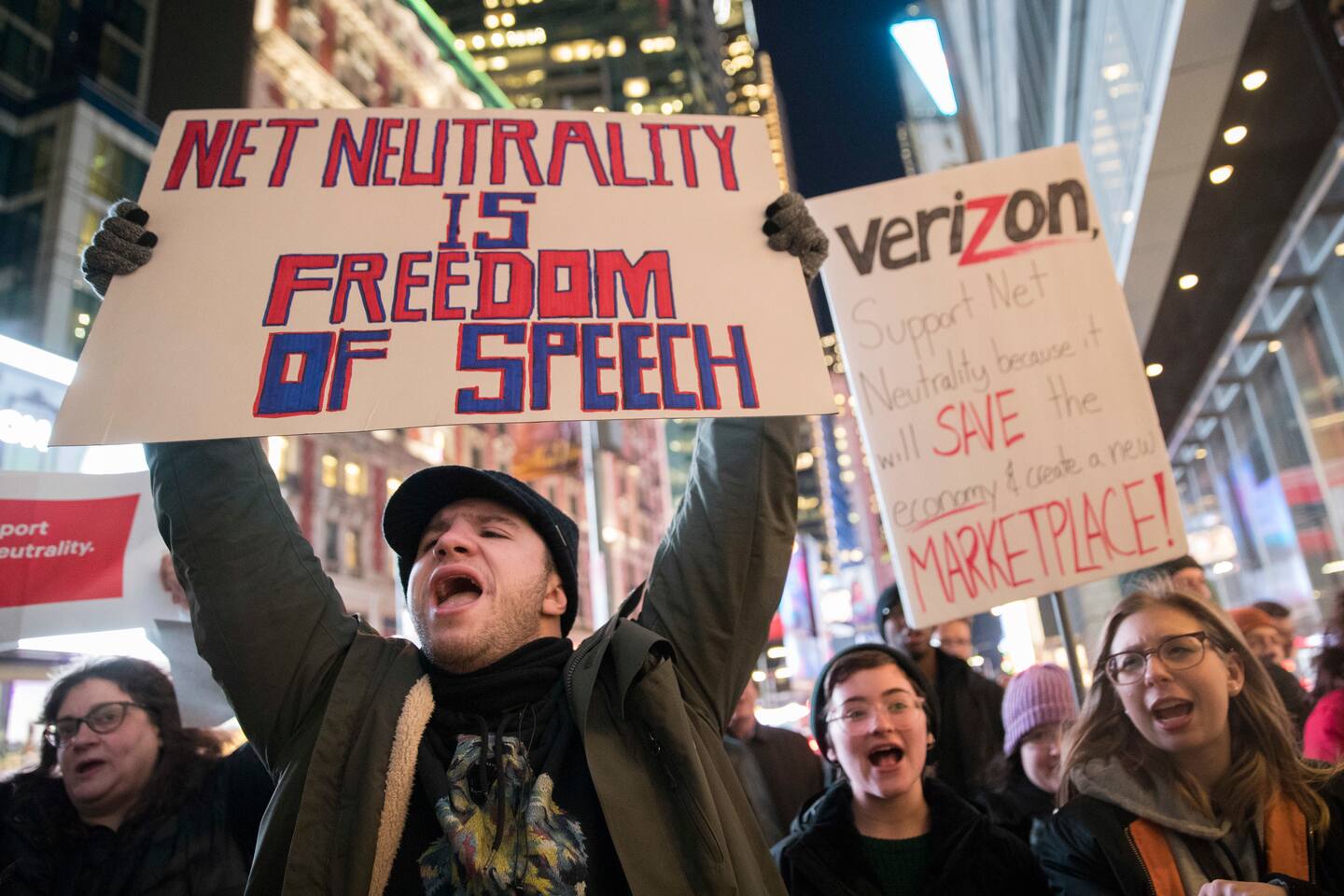Net neutrality law to take effect in California after judge deals blow to telecom industry

California enacted its open-Internet law in September 2018, months after the U.S. government under President Donald Trump eliminated national net neutrality protections. Golden State lawmakers said at the time that they had no choice but to adopt their own approach to prevent Internet providers from blocking or slowing down Web traffic or charging for faster delivery of some content or services.
But California’s digital protections spawned immediate legal blowback: The Trump-era Justice Department sued to block them hours after they became law. AT&T, Comcast, Verizon and other telecom companies, acting through their major lobbying groups, soon filed a lawsuit of their own. The carriers argued that the federal government specifically had preempted the states from adopting local net neutrality laws, which they said rendered California’s rules “a classic example of unconstitutional state regulation.”
The case remained in legal limbo for years, until the 2020 presidential election, which saw Democrats who support net neutrality, led by President Biden, take control of the White House and Congress. In one of the new administration’s first actions, the Justice Department earlier this month announced it would withdraw its case, injecting new hope into open-Internet advocates’ cause. On Tuesday, a federal judge in California’s Eastern District sided with the state in a ruling that net neutrality supporters saw as a major win.
“The judge found that the law is on a solid legal foundation and that the ISPs trying to overturn it are not likely to prevail,” Barbara van Schewick, a law professor at Stanford University, said in a statement. She penned one of the legal briefs in support of the law and against the Internet providers that had sought an injunction to stop it from taking effect.
“The judge found, as I’ve long argued, that an agency that says it has no power to regulate, it has no power to tell others they can’t regulate,” she said.
The four trade groups that had filed the lawsuit — America’s Communications Association, CTIA, the NCTA and USTelecom — said Tuesday they “will review the court’s opinion before deciding on next steps,” signaling a potential appeal that could again forestall enforcement of California’s rules.
“A state-by-state approach to Internet regulation will confuse consumers and deter innovation, just as the importance of broadband for all has never been more apparent,” they said in a joint statement. “We agree with the Court that a piecemeal approach is untenable and that Congress should codify rules for an open Internet.”
The California Attorney General’s Office did not respond immediately to a request for comment. Jessica Rosenworcel, the new acting Democratic chairwoman of the Federal Communications Commission, hailed the decision in a tweet.
The ruling Tuesday injects new legal and political energy into one of the most intractable debates in Internet policy. State lawmakers across the country had been eyeing the California case for years, hoping a legal resolution in the state’s favor might open the door for them to try to craft their own open-Internet rules without facing a similar legal threat.
“This is a huge victory for net neutrality and bodes well for other states that have adopted net neutrality requirements,” said Andrew Jay Schwartzman, senior counselor to the Benton Institute for Broadband & Society, which had filed an amicus brief in support of California’s rules.
The Biden administration faces pressure to restore tough, national net neutrality rules. But the Federal Communications Commission is deadlocked at two Democrats and two Republicans, a political composition that makes it nearly impossible for regulators to resolve the fight until the president nominates and the Senate confirms another Democratic member.






